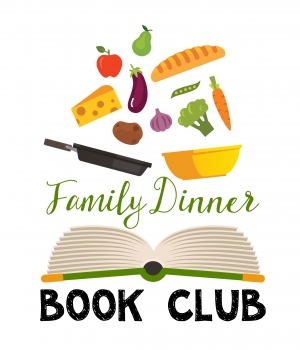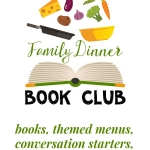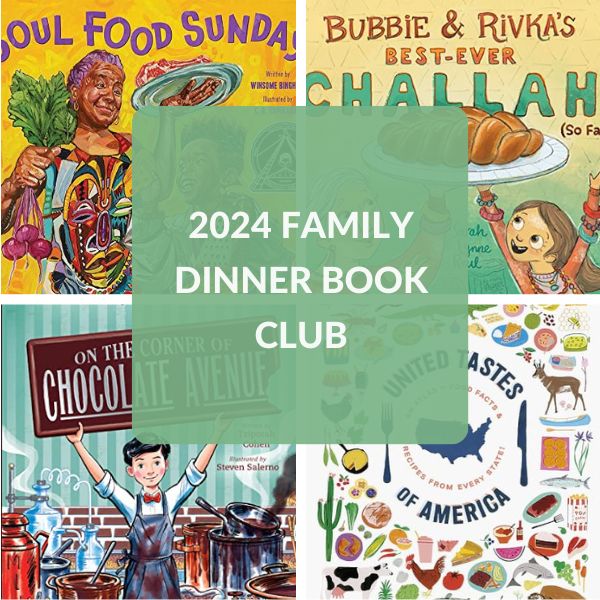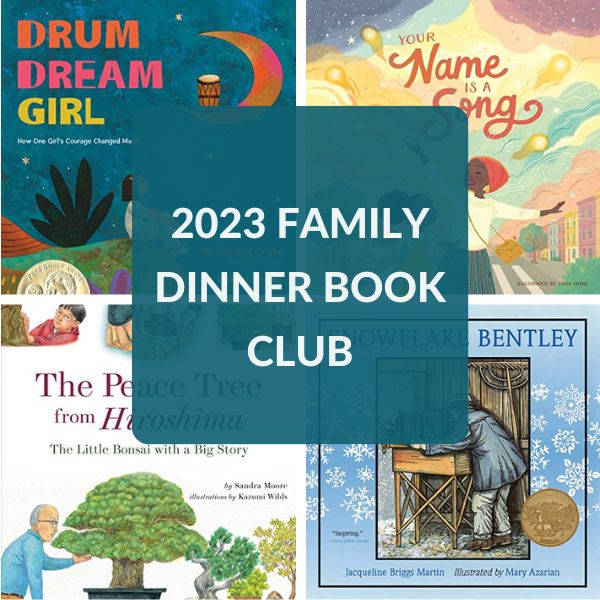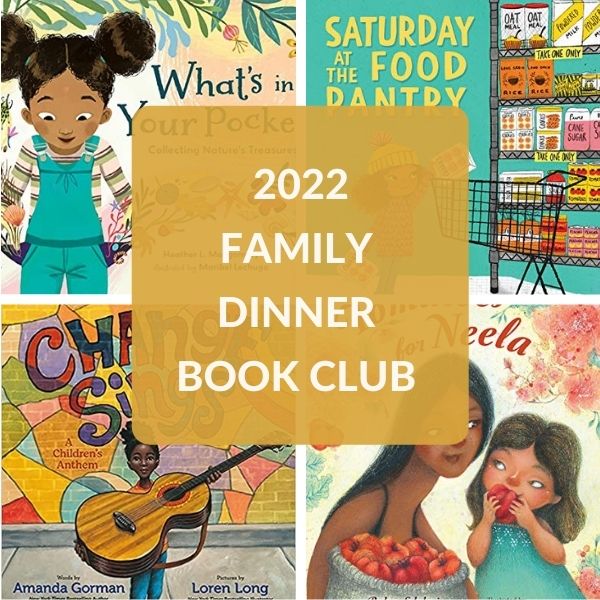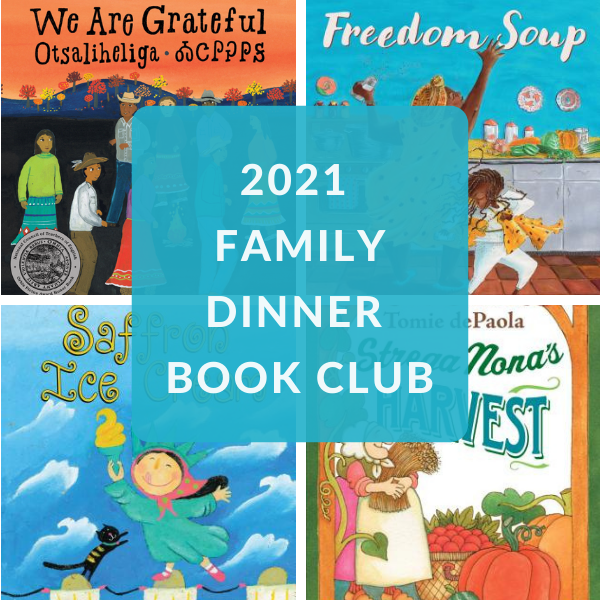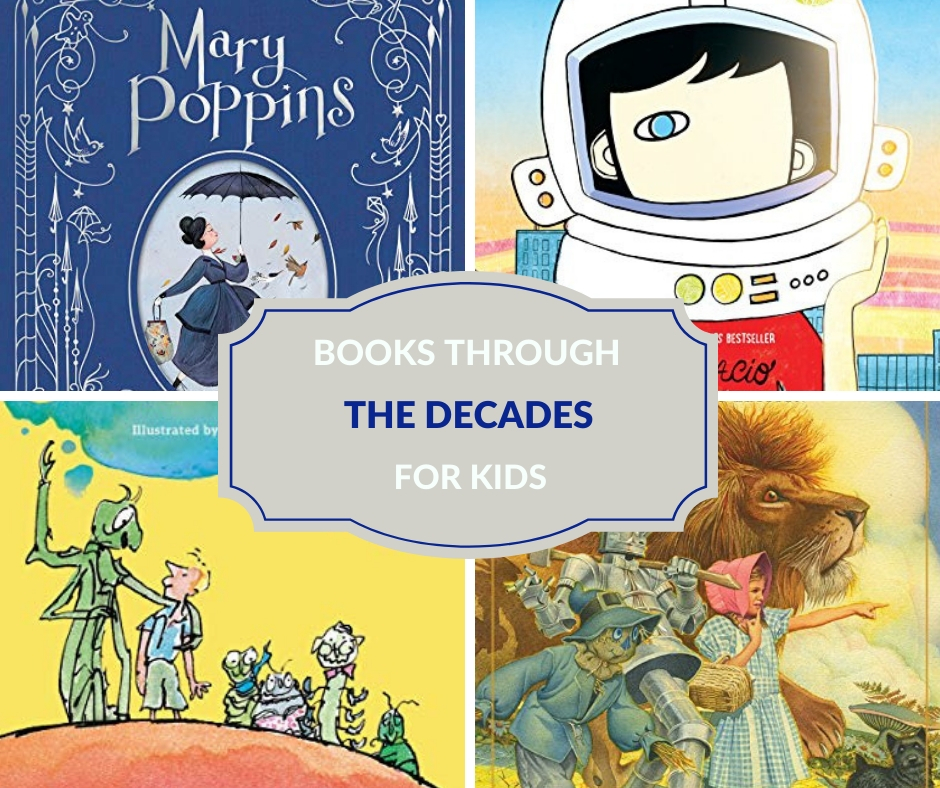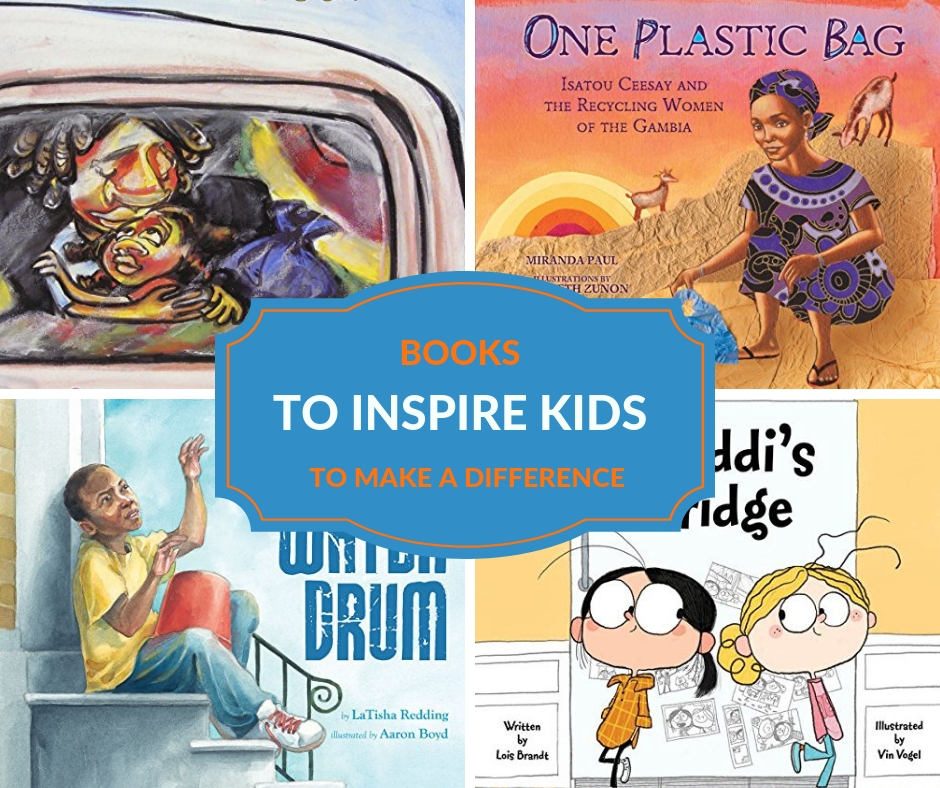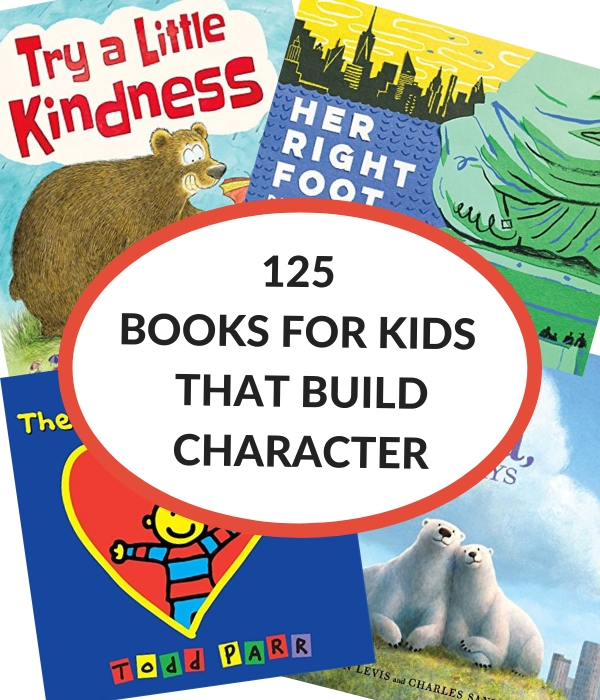Welcome to Family Dinner Book Club! This fun family project is meant to bring your family closer together over good books, good food, and great conversation.
Are you new to this fun project? Here is what you need to know to get started.
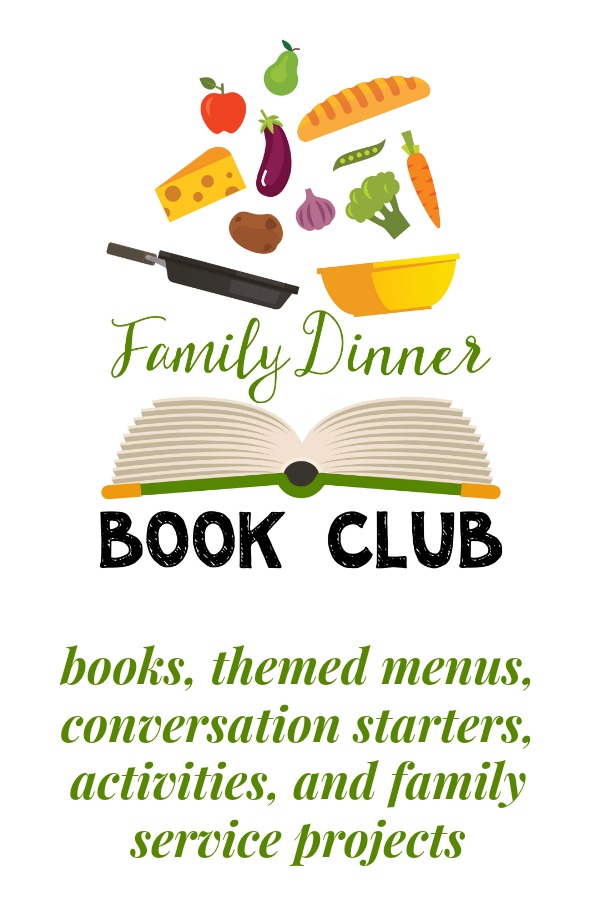
All About Family Dinner Book Club
Family Dinner Book Club invites you to share a great story, great art, great conversation, and great food each month. A variety of picture books and chapter books will be chosen for your enjoyment.
The project is perfect for children ages 4-8, but can easily be adapted for younger and older children.
On the first of each month, we will share everything you need to plan your Family Dinner Book Club.
You will then have the rest of the month to read the book, complete your service project, make your table decorations and enjoy your meal.
Growing Book by Book and Sunny Day Family will be working to bring you Family Dinner Book Club each month. Look for great book recommendations, conversation starters, menu ideas, and more.
You are welcome to follow along each month with us or pick a previous month to do.
Also, follow along with us on our Facebook page! We love to see pictures of your special dinner. Plus, we share extra materials to support your book club each month.
Family Dinner Book Club Picks (Current and Archives)
2024 Family Dinner Book Club
2024 is all about Good Food and Books. See the complete line-up.—> 2024 Family Dinner Book Club
2023 Family Dinner Book Club
For year 9 of Family Dinner Book Club, we are cuddling up with old favorites with a few new surprises. See the complete list.—-> 2023 Family Dinner Book Club
2022 Family Dinner Book Club List
In 2022, we built up social-emotional learning. See all the goodness here.—> 2022 Family Dinner Book Club
2021 Family Dinner Book Club List
In 2021, we are celebrating. It’s a year of celebrations. Click here to see the line-up.—> 2021 Family Dinner Book Club
2020 Family Dinner Book Club List
In 2020 we traveled through the decades through books and movies. Each month we will select a book from each decade that also was turned into a movie. As always, we have conversation starters, activity, and a themed menu for your book club needs. Click here to see the line-up.—>2020 Books Through the Decades Family Dinner Book Club Schedule
2019 Family Dinner Book Club List
For 2019, our focus for the year will be Children Making a Difference in the World. Each month we will focus on a different topic that kids can focus on to make a difference. A large book list will be shared as well as conversation starters, a themed menu, table decorations, activities, and a family service project. Click here to see the list.—>2019 Family Dinner Book Club Line-Up of Kids Making a Difference
2018 Family Dinner Book Club List
The 2018 focus is on character strengths. Each month a different character trait will be highlighted. A large book list will be shared as well as conversation starters, a themed menu, table decorations, activities, and a family service project. Click here to see the list.—>2018 Family Dinner Book Club Line-Up.
2017 Around the World Family Dinner Book Club List
Check out where we are traveled to in 2017. Here’s our 2017 Around the World Family Dinner Book Club Line-Up!
2016 Book List
View our 2016 Family Dinner Book Club List.
Previous Book Clubs (More From The Archives)
Mr. Popper’s Penguins by Richard Atwater
The Smallest Girl in the Smallest Grade by Justin Roberts
Mary Poppins by P.L. Travers
Where the Sidewalk Ends by Shel Silverstein
The Littles by John Peterson
Ivan: The Remarkable True Story of the Shopping Mall Gorilla by Katherine Applegate
Runaway Ralph by Beverly Cleary
A Color of His Own by Leo Lionni
Mrs. Piggle Wiggle by Betty MacDonald
If Kids Ran the World by Leo and Diane Dillon
The Hundred Dresses by Eleanor Estes
Strega Nona by Tomie dePaola
Winnie-the-Pooh by A.A. Milne
The Day the Crayon’s Quit by Drew Daywalt
Charlotte’s Web by E.B. White
Xander’s Panda Party by Linda Sue Park
Charlie and the Chocolate Factory by Roald Dahl
Cook-A-Doodle-Doo by Janet Stevens
Pippi Longstocking by Astrid Lindgren
The Giving Tree by Shel Silverstein
The Cricket in Times Square by George Selden
Thank You, Mr. Falker by Patricia Polacco and Bookmarks Are People Too by Henry Winkler
Little House on the Prairie by Laura Ingalls Wilder
Dumpling Soup by Jama Kim Rattigan
 Feedback from Family Dinner Book Club Participants
Feedback from Family Dinner Book Club Participants
“So glad we found your site! My 4 y/o daughter and I did the service project and donated toys to an animal shelter. I thought she might be a little too young for it but it turned out to be a fantastic experience for both of us! Thank you!” Stephanie regarding Mr. Popper’s Penguins Book Club
“My daughter keeps wanting to read it over and over again, and she loved seeing footage of Ivan!” Jazmin regarding Ivan: The Remarkable True Story of The Shopping Mall Gorilla
“My 7 year old son LOVED this book! It’s been quite a while since he’s been so engaged in a book. I used Daisy at Home’s ideas completely!” Carla regarding Where the Sidewalk Ends
Get Notified When New Family Dinner Book Clubs Are Released
Sign up for our special Family Dinner Book Club newsletter. You’ll get an email when a new FDBC is released each month.—>Sign Up By Clicking HERE
